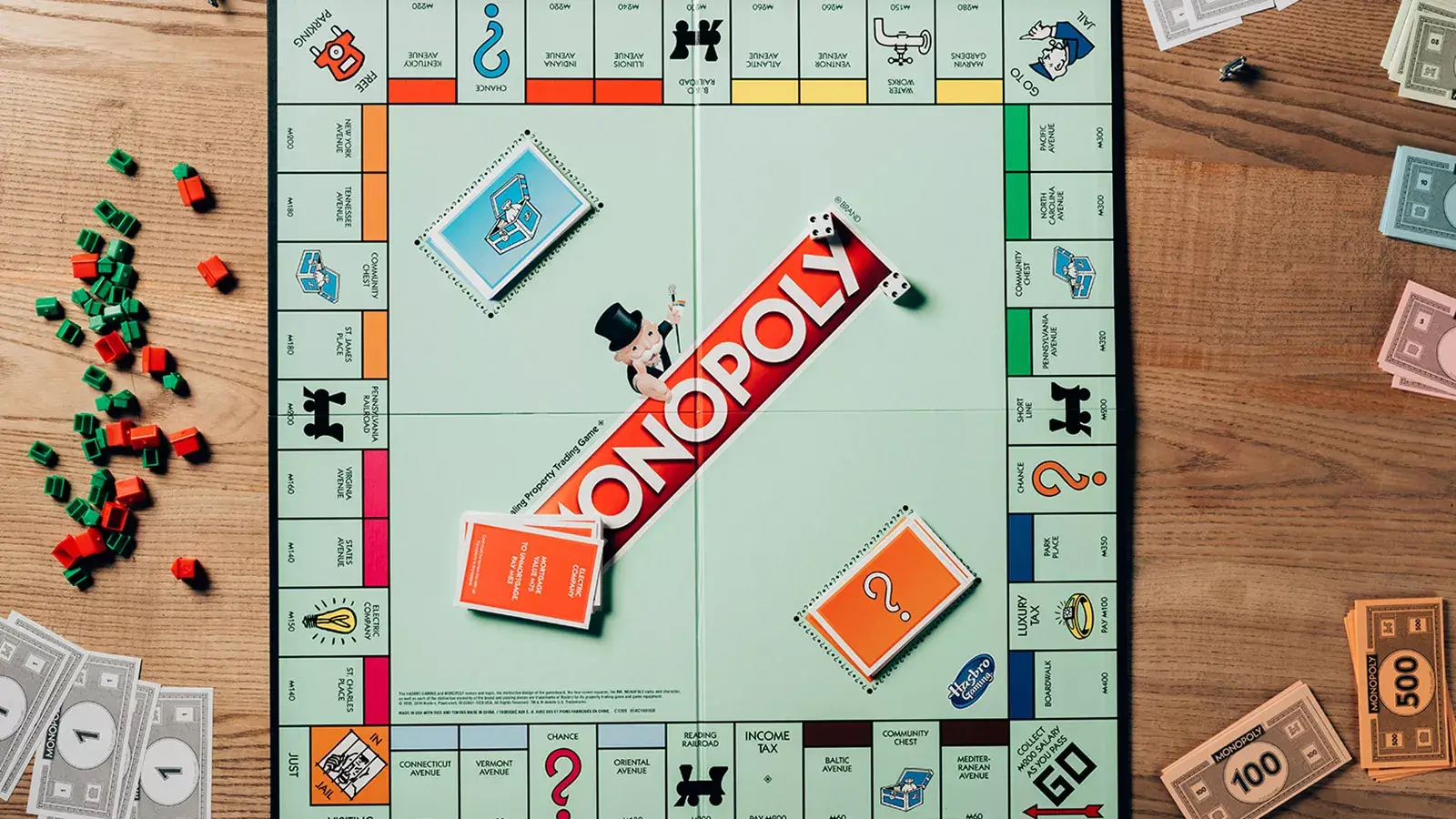What is the World Series of Poker? The WSOP is the premier poker event that brings together the best players from around the world. Held in Las Vegas, the tournament offers millions of dollars in prize money every year and prestigious bracelets considered a symbol of greatness in management. The competition includes several disciplines, but the WSOP Main Event, which determines the champion, takes centre stage.
WSOP: what is the World Series of Poker?
The WSOP came into existence in 1970 thanks to Benny Binion, owner of the Horseshoe Casino in Las Vegas. At first, only seven players participated in the tournament, who chose the winner by voting. But after a few years, the formula changed: contestants started competing in no-limit hold’em and the winner was the one who took all the chips from his opponents.
Over the years, the series became a major poker event, with dozens of tournaments with million-dollar prizes. In 2003, the format’s popularity skyrocketed after Chris Manimaker became the first champion to qualify via an online satellite. Today, thousands of players participate in the Main Event and prize pools reach tens of millions of dollars.
WSOP: Tournament rules and formats
In answer to the question of what the World Series of Poker is, it is impossible not to talk about its disciplines. The most popular ones are:
- No-Limit Texas Hold’em – the most important part of the WSOP.
- Omaha – a four-card stud variant of poker, popular with the pros.
- Stud – a classic format where players are dealt face-up and face-down cards.
- Mixed games – tournaments where different disciplines are alternated, such as HORSE (Hold’em, Omaha, Razz, Stud, High-Low Stud).
Each tournament has a fixed buy-in, which can range from a few hundred to hundreds of thousands of dollars.
How much can you win?
It is no secret that the prize pools at the World Series of Poker are the biggest in poker in the world. In 2006, Jamie Gold won $12 million in the Main Event, which was an all-time record. In recent years, the amounts ranged from $8 million to $10 million and the total prize pool of the tournament is more than $100 million. Besides the Main Event, significant amounts are played in the High Roller sessions with buy-ins of $100,000 and above. Winners receive not only cash, but also the legendary gold bracelets, the main symbol of success.
WSOP Main Event
 The WSOP Main Event is the most prestigious and anticipated event among poker players from all over the world. Every year it attracts thousands of participants who compete for the title of champion and multi-million dollar prizes. The buy-in is $10,000, making the event accessible to both professionals and amateurs who have qualified through online satellites or live qualifiers.
The WSOP Main Event is the most prestigious and anticipated event among poker players from all over the world. Every year it attracts thousands of participants who compete for the title of champion and multi-million dollar prizes. The buy-in is $10,000, making the event accessible to both professionals and amateurs who have qualified through online satellites or live qualifiers.

The tournament lasts about two weeks, during which participants compete in an elimination tournament. Everyone starts with the same number of chips, and the main task is to win all the chips of the opponents and get to the final table. The format is no-limit Texas Hold’em, which makes each hand tense and strategically complex.
With each game day, the blinds (mandatory bets) increase, forcing participants to take risks, adapt and demonstrate skill. When the best of the best are left at the tables, the final battle for the title begins. The winner receives a WSOP gold bracelet, which is considered the highest honour in the world of poker, as well as multi-million dollar prizes that can reach $10 million or more.
How to get to the WSOP and try your hand at it
As we continue our review of what the World Series of Poker is all about, it’s important to say that the tournament is open to anyone with $10,000 in buy-in money. That being said, not every player is willing to put up that amount of money right away. Fortunately, the WSOP offers various ways to get into the event – qualifiers allow you to win a seat for less money or even for free.
The most popular way is through online satellites, which take place on major poker platforms. These tournaments allow players to work their way up to the main event for a small amount of money, starting with micro-betting for as little as $1. Winners get tickets to the more expensive satellites and then on to the final qualifying stages, where they can win their way to Las Vegas.

Live games take place in the world’s biggest casinos, including Monte Carlo, Macau and the biggest poker clubs in Europe. These tournaments allow participants with good play to earn a seat in the main event without having to deposit $10,000 right away. Entering the WSOP is a chance to test your skills at the highest level, play against the best players in the world, experience the atmosphere of Poker Olympus and possibly change your life forever.
Legendary WSOP winners and their impact
The WSOP has produced a host of legendary players who have become poker icons and changed the perception of the game:
- Doyle Brunson, two-time WSOP champion (1976 and 1977) and author of Super System, which became the bible of poker. His aggressive style and deep understanding of the game have made him a tournament icon, and the publication has taught millions of players around the world how to win.
- Phil Hellmuth is the record holder for the most WSOP bracelets (16). His incredible discipline, ability to read his opponents and unique style of play allowed him to set a record that no one has been able to beat so far.
- Daniel Negreanu is one of the most popular and successful players who has earned tens of millions of dollars at the WSOP. The poker player’s style is based on a deep analysis of his opponents and the ability to predict their actions.
What is winning the World Series of Poker? It’s a life-changing event. Players become superstars, win millions of dollars and gain recognition. A WSOP championship is the pinnacle of a poker career, a symbol of skill, intelligence and composure.
Online WSOP: the age of the internet
Poker is changing, and the WSOP has stepped into the digital age. In addition to live tournaments, there is an official online series where users from around the world can compete for bracelets, prize pools and the right to enter the Main Event.
WSOP virtual tournaments take place on official poker platforms such as GG Poker and WSOP.com. There, participants can compete from anywhere on the planet without travelling to Las Vegas, and have a chance to win a bracelet. The WSOP’s online formats include a variety of poker types, from no-limit hold’em to Omaha and mix games. Prize money reaches millions of dollars, and top players get the chance to qualify for the series’ live tournaments.
Where to watch the WSOP: tournament broadcasts
Answering the question of what the World Series of Poker is, it’s not just a tournament, it’s also a show watched by millions of viewers. The official broadcasts allow you to follow the game in real time, analyse the decisions of the best minds and get into the atmosphere of the greatest event.
Tournaments are broadcast on:
- ESPN and CBS Sports – the official TV channels covering the WSOP’s biggest events.
- YouTube and Twitch – online platforms where top commentators break down hands and strategies.
- The official WSOP website is where results, interviews with winners and the best hands are posted.
Conclusion
 What is the World Series of Poker? It is the world’s premier poker event, bringing together professionals and amateurs. The tournament has become part of the history of Las Vegas casinos, the place where new stars and millionaires are born. WSOP: millions of dollars in prize money, prestigious bracelets, legendary winners and an unforgettable atmosphere of poker excellence. Live and online satellites are available to enter the tournament, while live streaming allows you to follow the action in real time.
What is the World Series of Poker? It is the world’s premier poker event, bringing together professionals and amateurs. The tournament has become part of the history of Las Vegas casinos, the place where new stars and millionaires are born. WSOP: millions of dollars in prize money, prestigious bracelets, legendary winners and an unforgettable atmosphere of poker excellence. Live and online satellites are available to enter the tournament, while live streaming allows you to follow the action in real time.
 en
en  ru
ru  de
de  ar
ar  es
es  nl
nl  hi
hi  fr
fr  it
it  pt
pt  el
el 











